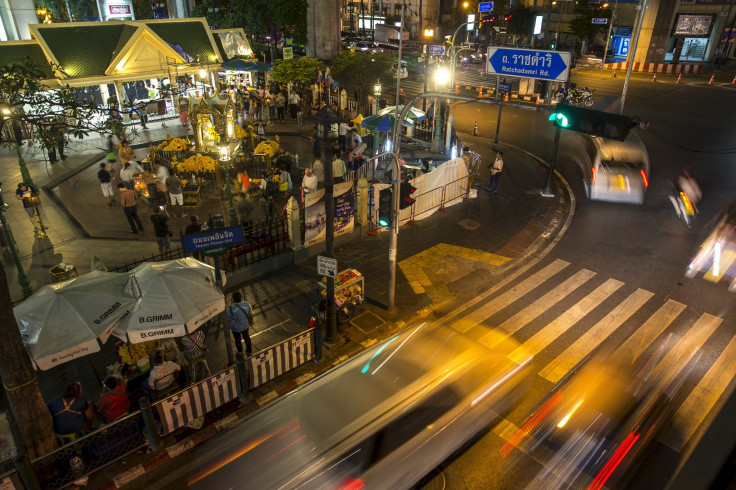Bangkok Bombing: Chinese Thailand Tourists Cancel Trips Amid Fears Of Industry Decline, Travel Agents Say

With millions of Chinese nationals visiting South Asia's tropical beach resorts and metropolitan shopping districts every year, government officials from China warned citizens this week to be cautious while in Thailand and to re-examine itineraries for planned trips there. The warning comes as Thai and Chinese citizens are reeling from a bombing Monday at a popular tourist attraction that left nearly two dozen people dead and more than 100 injured.
The travel advisory from the China National Tourism Administration, along with reports that tourists from China, including two Chinese citizens who were among the dead at the Erawan Shrine in Bangkok, may have been targeted in the attack prompted cancellations of upcoming excursions, travel agents said. Any sustained decline in tourism would hurt Thailand's already ailing economy, which was depending on a projected increase in Chinese visitors this year.
"The canceled orders so far even include those departing in September, although we tried to explain to them that this was just one incident," Anny Lou, an assistant manager at Shanghai's Jin Jiang Travel, told the South China Morning Post Thursday. "What worries us most now is that this might impact the National Day golden week holiday."
The Oct. 23 holiday, a national nonworking day marking the 1910 death of Thai King Chulalongkorn, includes celebrations of Thai culture and European influence throughout Bangkok. Unlike Monday's blast at the Hindu temple that killed at least 20 people and injured 125, past incidents of civil unrest and national emergencies haven’t erupted in popular tourist areas, some travel agents in Thailand said.
"At least in recent years, tourists have never been really the target,” Mario Hardy, a Bangkok-based chief executive of the Pacific Asia Travel Association, told the Associated Press. Hardy said the country is unlikely to reach tourism projections because of the bombing, but will likely see normal tourism levels in three to six months, if the bombing turns out to be a lone incident.
More than 4.6 million Chinese visitors visited Thailand last year, according to an AP report. National tourism officials expected the number to climb to 5.6 million this year. Chinese citizens spend 5,500 baht, or $155, on average per day in Thailand. With the revenue from European tourists, Thailand expected to see $5.6 billion this year, according to a Business Insider report.
© Copyright IBTimes 2024. All rights reserved.





















